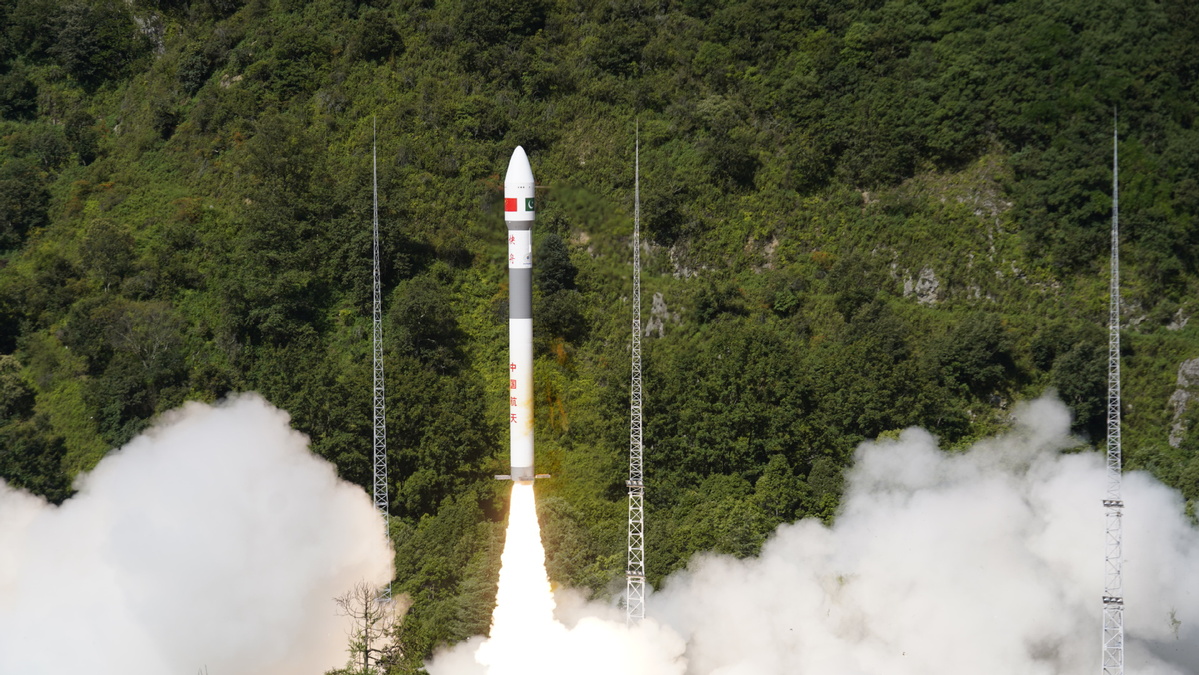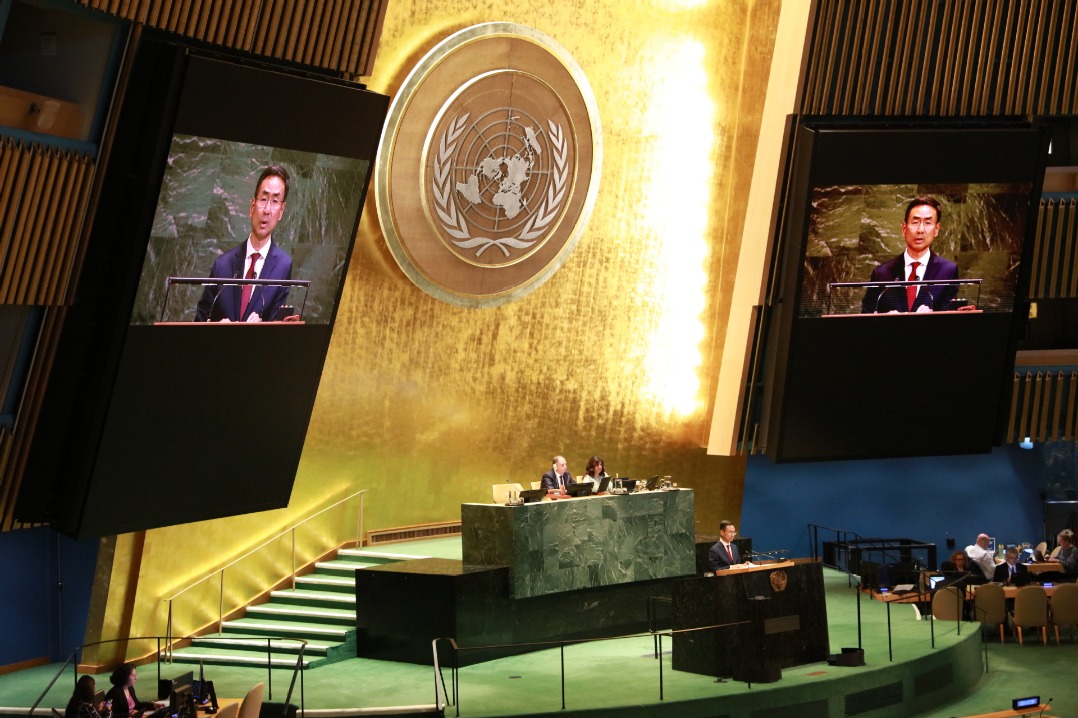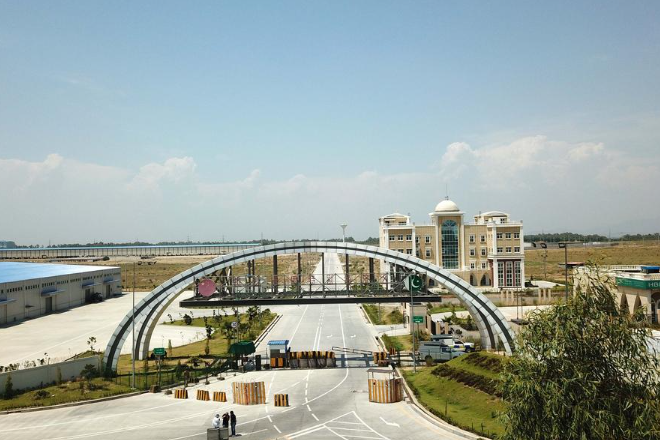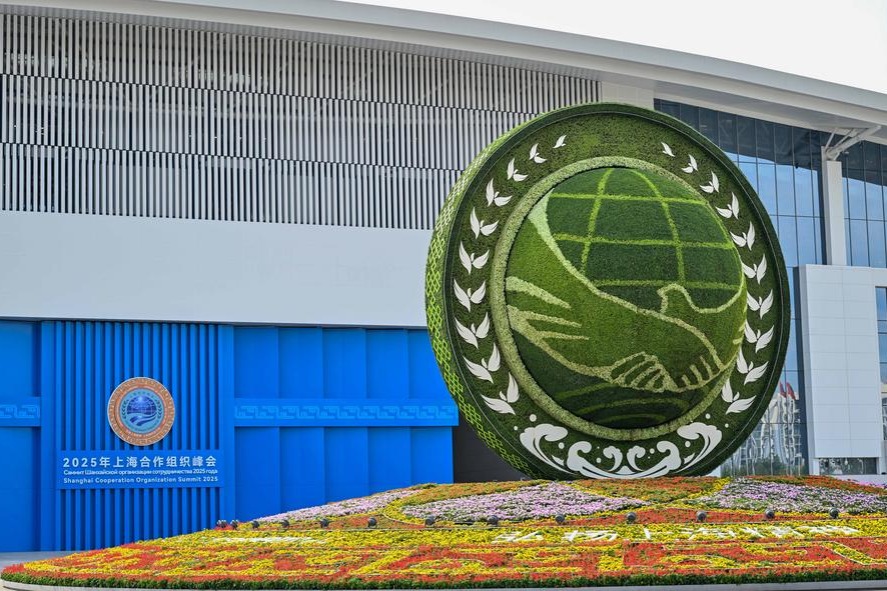Pakistani minister hails high-tech ties with China


A senior Pakistani official has expressed the hope that closer cooperation with China in high-tech fields will unlock new development opportunities and further deepen the all-weather strategic partnership between the two countries.
Describing the bilateral friendship as "now higher than the skies", Ahsan Iqbal, Pakistan's minister for planning, development and special initiatives, expressed great satisfaction at the recent successful launch of the Pakistan Remote-Sensing Satellite from the Xichang Satellite Launch Center in China's Sichuan province.
The satellite — designed primarily for land resource surveys and disaster management — represents a significant milestone in bilateral cooperation and marks a major advancement in Pakistan's space capabilities, he said.
"With this launch, I can proudly say that the Pakistan-China friendship — once described as higher than the Himalayas — is now higher than the skies," Iqbal told reporters at the Pakistani embassy in Beijing. "Now, the skies bear witness to the strength of our relationship."
Noting Pakistan's vulnerability to natural disasters, Iqbal emphasized the importance of satellite technology in disaster prediction, agricultural planning, urban development and the management of natural resources.
As the global focus increasingly shifts toward space and science, the minister said bilateral collaboration reflects "the growing maturity and expansion of bilateral ties".
In a significant step for space cooperation, China and Pakistan signed an agreement in February to select and train Pakistani astronauts for missions to China's Tiangong space station. This marks the first time that China will train and send a foreign astronaut to its space station.
Iqbal also expressed admiration for China's remarkable lunar exploration achievements, particularly the successful rover missions, saying that Pakistan has its own ambitions for a lunar landing and is exploring potential cooperation with China.
He described innovation as "the new currency of development", stressing the need for developing nations to strengthen their capabilities in science, technology and engineering.
Iqbal added that Pakistan looks forward to joint research projects and institutional cooperation with the Chinese Academy of Sciences and other scientific organizations.
He also revealed that Pakistani Prime Minister Shehbaz Sharif will attend the Shanghai Cooperation Organization Summit in Tianjin later this month and is expected to hold bilateral talks with Chinese leaders.
Noting that the summit is a critical gathering at a pivotal time, the Pakistani official said that issues such as ensuring stability, strengthening global governance and increasing cultural and people-to-people exchanges are expected to be featured on the agenda.
It is important for leaders from SCO countries to meet and "play a role to bring about the de-escalation in different parts of the world" amid geopolitical conflicts and global uncertainties, he added.
zhaojia@chinadaily.com.cn

































